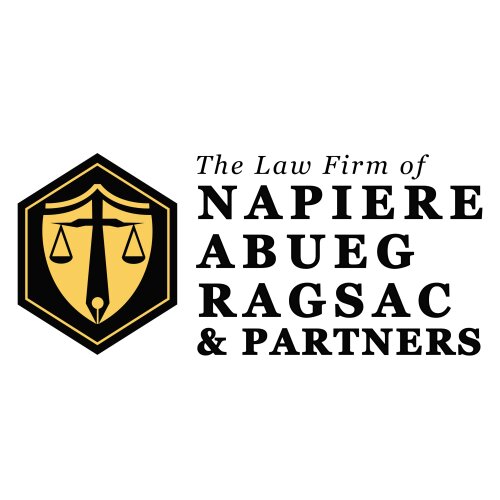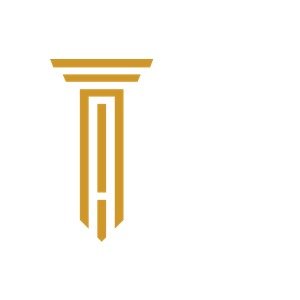Best Debt Capital Markets Lawyers in Quezon City
Share your needs with us, get contacted by law firms.
Free. Takes 2 min.
List of the best lawyers in Quezon City, Philippines
About Debt Capital Markets Law in Quezon City, Philippines
Debt capital markets (DCM) revolve around the raising of funds by issuing debt securities, such as bonds or notes. In Quezon City, which is part of Metro Manila, these legal services cater to companies, public entities, and sometimes individuals who seek to borrow money from the investing public or private sources. Debt capital markets law covers the rules and regulations that govern the issuance, management, trading, and repayment of debt securities in the Philippines. This field often deals with compliance, registration, and disclosure requirements set by the Securities and Exchange Commission (SEC) and the Philippine Dealing and Exchange Corp. (PDEx), especially for those operating or raising capital within Quezon City.
Why You May Need a Lawyer
Seeking assistance from a debt capital markets lawyer in Quezon City can help you in various scenarios:
- Structuring and launching a bond issue or debt offering for a corporation or government entity.
- Ensuring compliance with local and national securities regulations before proceeding with an issuance.
- Handling private placements and syndicated loans that involve multiple parties or cross-border arrangements.
- Negotiating terms and conditions with investors or financial institutions.
- Advising on the listing or trading of debt securities on the Philippine Dealing and Exchange Corp. (PDEx).
- Addressing post-issuance matters such as disclosures, reporting, or regulatory inspections.
- Assisting with defaults, restructurings, or unwinding of debt offerings.
Legal advice is crucial to avoid regulatory breaches, minimize risks, and ensure all documentation and processes are properly handled.
Local Laws Overview
Debt capital markets in Quezon City are governed by several laws and regulations, with the following being particularly significant:
- Securities Regulation Code (SRC) - Republic Act No. 8799: This is the principal law governing securities, including debt offerings, disclosures, registration, and anti-fraud provisions.
- Guidelines of the Securities and Exchange Commission (SEC): The SEC issues relevant rules, such as the requirements for registration of securities to be offered or sold to the public.
- Corporate Recovery and Insolvency Act (FRIA): When there are issues on repayment or insolvency, this law may come into play for restructuring debts.
- Philippine Dealing and Exchange Corp. (PDEx) Rules: If bonds or notes are to be traded publicly, PDEx trading rules and listing requirements must be met.
- Banking Laws and Other Financial Regulations: When debt instruments involve banks or quasi-banks, other regulations from the Bangko Sentral ng Pilipinas (BSP) could be relevant.
It is vital for both issuers and investors to understand these regulations to ensure compliance and protect their rights.
Frequently Asked Questions
What are debt securities?
Debt securities are financial instruments that represent a loan made by an investor to a borrower. Common examples include bonds, notes, and debentures.
Do I need to register my bond issue with the SEC in the Philippines?
Yes, public offerings of debt securities generally require registration and approval from the Securities and Exchange Commission before they can be offered or sold to the investing public in Quezon City or elsewhere in the Philippines.
Can debt securities be privately placed without SEC approval?
Private placements may not require full registration but may be subject to specific exemption criteria under SEC regulations. Consulting a lawyer is recommended to determine eligibility for exemptions.
What is the role of the PDEx in debt capital markets?
The Philippine Dealing and Exchange Corp. (PDEx) is the country's organized exchange for trading debt securities. It sets listing standards and trading rules for bonds and similar instruments.
Who typically invests in debt securities in the Philippines?
Investors include banks, insurance companies, pension funds, corporations, and high-net-worth individuals.
What are the consequences of not complying with debt capital markets laws?
Non-compliance can lead to penalties, regulatory sanctions, disqualification, or even criminal liability. It can also damage the issuer's reputation and jeopardize transactions.
Are foreign entities allowed to issue debt securities in Quezon City?
Foreign entities can issue debt securities but must comply with Philippine securities laws, registration requirements, and foreign investment rules.
How are disputes regarding debt securities resolved?
Disputes may be resolved through negotiation, mediation, or formal legal proceedings, often within the jurisdiction of Philippine courts or regulatory bodies.
What information must be disclosed when issuing debt securities?
Issuers must provide a prospectus detailing the security features, financial condition, risks, use of proceeds, and other relevant disclosures required by the SEC.
Do individuals need a lawyer to invest in or issue debt securities?
While not mandatory, having a lawyer ensures that all regulatory requirements are met, risks are minimized, and interests are properly protected throughout the process.
Additional Resources
Here are several resources and organizations that may assist those seeking legal guidance in debt capital markets in Quezon City:
- Securities and Exchange Commission (SEC) - The main regulatory body for securities transactions in the Philippines
- Philippine Dealing and Exchange Corp. (PDEx) - Responsible for the listing and trading of bonds and debt instruments
- Integrated Bar of the Philippines - For referrals to lawyers specializing in debt capital markets and financial law
- Bangko Sentral ng Pilipinas (BSP) - Regulator of banks and financial institutions, with some supervision over bond activities involving banks
- Quezon City Local Government - Business permit and regulatory departments may provide local compliance guidance
Next Steps
If you need legal assistance related to debt capital markets in Quezon City, consider the following steps:
- Identify your specific need: Whether you are issuing, investing, or managing debt securities, clarify your goals and concerns.
- Gather all relevant documents: Collect contracts, offer terms, correspondence, and any regulatory filings related to your case.
- Consult with a qualified lawyer: Choose a legal professional with expertise in debt capital markets and Philippine securities law.
- Discuss compliance and strategy: A lawyer can help map out the regulatory requirements and ideal methods for structuring or resolving your transaction or dispute.
- Maintain open communication: Stay updated with legal and regulatory developments that may affect your interests.
By taking these steps, you can better protect your rights and ensure your activities in the debt capital markets in Quezon City comply with all applicable laws.
Lawzana helps you find the best lawyers and law firms in Quezon City through a curated and pre-screened list of qualified legal professionals. Our platform offers rankings and detailed profiles of attorneys and law firms, allowing you to compare based on practice areas, including Debt Capital Markets, experience, and client feedback.
Each profile includes a description of the firm's areas of practice, client reviews, team members and partners, year of establishment, spoken languages, office locations, contact information, social media presence, and any published articles or resources. Most firms on our platform speak English and are experienced in both local and international legal matters.
Get a quote from top-rated law firms in Quezon City, Philippines — quickly, securely, and without unnecessary hassle.
Disclaimer:
The information provided on this page is for general informational purposes only and does not constitute legal advice. While we strive to ensure the accuracy and relevance of the content, legal information may change over time, and interpretations of the law can vary. You should always consult with a qualified legal professional for advice specific to your situation.
We disclaim all liability for actions taken or not taken based on the content of this page. If you believe any information is incorrect or outdated, please contact us, and we will review and update it where appropriate.
















